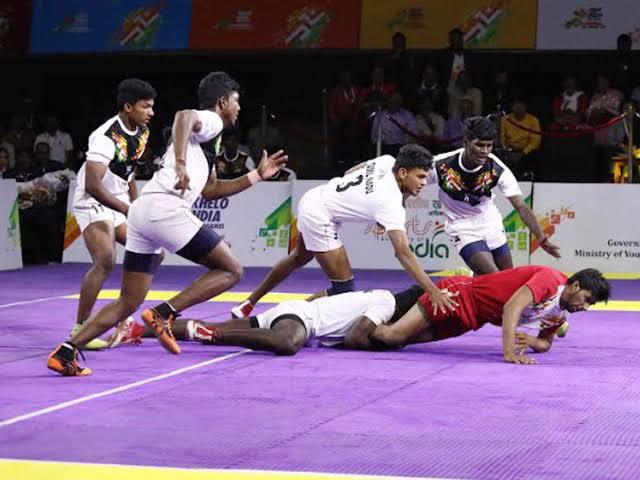Children’s martial arts programs are becoming increasingly popular, with many parents seeking activities that do more than just keep their kids active. Martial arts training teaches important values like discipline, confidence, and respect, but one quality that often goes unnoticed is empathy. More than just physical skills, martial arts provides an environment where children learn to understand others, connect emotionally, and build compassion. These lessons extend far beyond the gym, shaping how kids interact at school, at home, and in their communities.
Learning To See Through A Partner’s Eyes
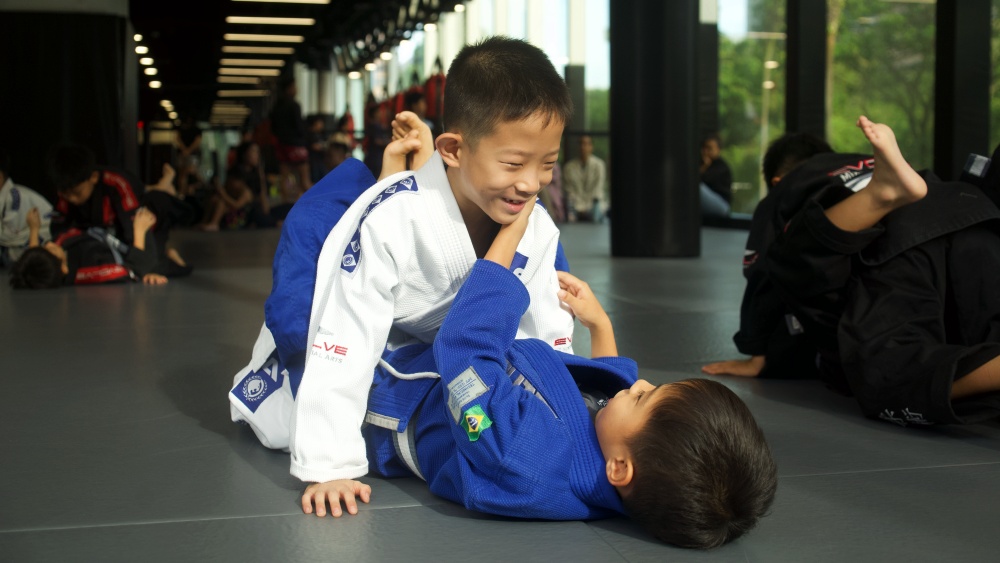
Martial arts builds empathy by teaching kids to work with partners, experiencing both control and vulnerability, all while training with the intent to help each other improve.
One of the first ways martial arts fosters empathy is through partner training. Whether a child is practicing a punch, a takedown, or a drill, they must work with someone else. Kids quickly realize that training is not about dominating their partner, but about helping each other improve.
For example, when a child practices Brazilian Jiu-Jitsu, they experience what it feels like to be in both a strong position and a vulnerable one. This gives them perspective on how others feel in the same situation. Over time, they learn to balance control with care, making sure their partner is safe while still challenging them. That sense of awareness naturally builds empathy.
Developing Patience And Understanding
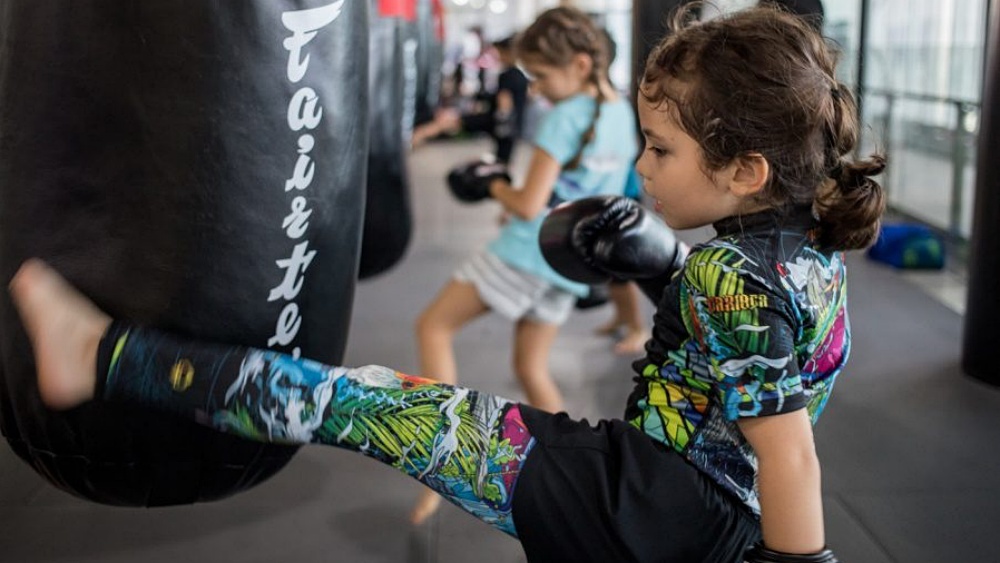
Martial arts teaches kids patience and empathy by helping them respect different learning speeds, encourage peers, and respond calmly to challenges inside and outside the gym.
Martial arts training emphasizes progress at your own pace. Not every child learns techniques at the same speed, and this teaches students to be patient with themselves and with others. When children see their peers struggle with a new skill, they learn to offer encouragement rather than judgment.
This patience extends outside the gym. Kids who practice martial arts often show more understanding toward classmates or siblings who might be having a difficult time, be it dealing with a task or in general. Instead of reacting with frustration, they learn to pause, recognize the situation, and respond with empathy.
Experiencing Both Success And Setbacks
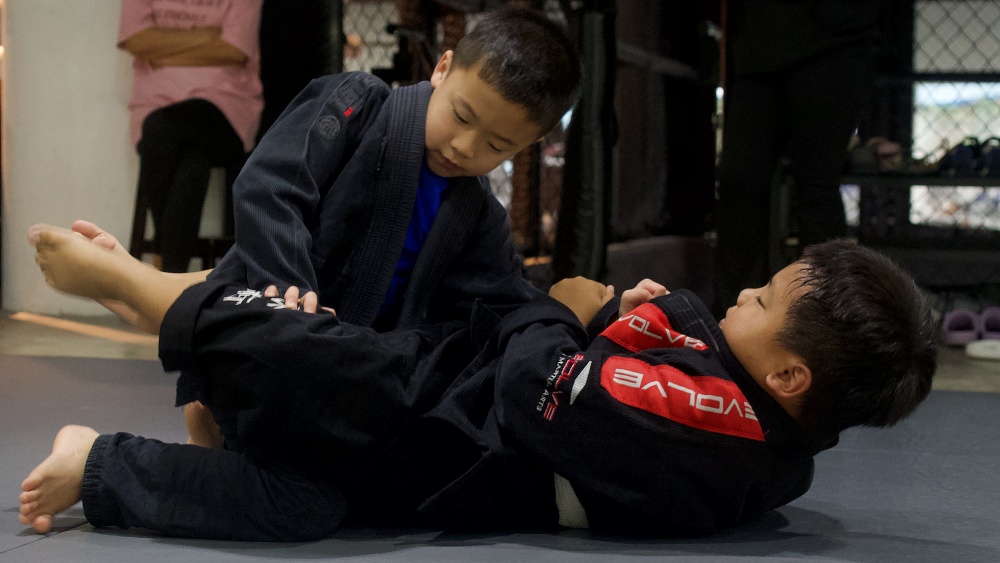
Martial arts teaches kids humility and empathy by letting them experience both wins and setbacks, helping them encourage and support others through challenges.
Martial arts introduces children to the reality that sometimes you succeed, and sometimes you fall short. Kids may win a sparring round or achieve a new belt, but they also face setbacks, like getting outperformed in a drill. Experiencing both sides of success and struggle teaches them humility.
More importantly, it helps them relate to others. A child who has felt the sting of defeat knows how much a kind word of encouragement can mean. This awareness builds empathy, as they learn to treat others with kindness when they are going through tough moments.
Building A Supportive Community
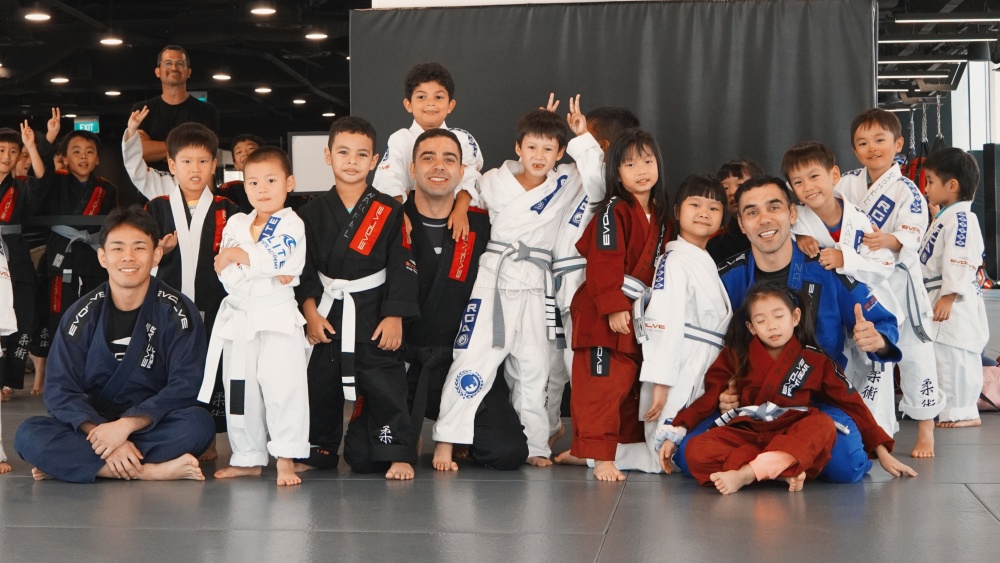
Martial arts gyms build a supportive community where kids celebrate each other’s progress, fostering empathy, cooperation, and leadership skills.
Martial arts gyms, especially those that focus on kids’ programs, foster strong communities where teamwork matters. Children are taught to celebrate their classmates’ improvements as much as their own. Cheering for a friend who lands a new technique or passes a belt test reinforces the idea that success is better when shared.
In this environment, empathy becomes second nature. Kids feel supported by others, and they learn the importance of supporting those around them. These experiences shape how they interact socially, making them more compassionate and cooperative, resulting in them being the supportive member or even leader in their tribe!
Encouraging Empathy Through Leadership Roles
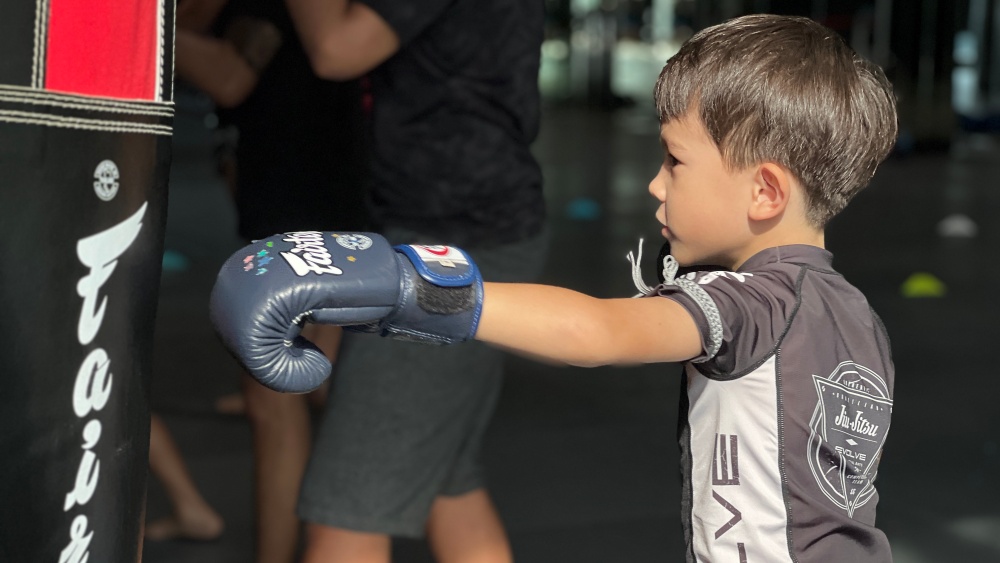
As kids progress in martial arts, mentoring beginners teaches them to turn empathy into action, building patience, communication, and real-world leadership skills.
As children progress in martial arts, they often take on informal leadership roles, such as helping newer students learn basic movements. Teaching a beginner requires patience, clear communication, and encouragement. When older children see how much their guidance matters to someone just starting out, they naturally grow more empathetic.
This process teaches kids that empathy is not just about feelings, but about action, choosing to help, support, and uplift others. These leadership moments prepare children for real-life situations where they must step up with understanding and kindness.
Final Thoughts
Martial arts is far more than kicks, punches, or rolls. It is a journey that shapes a child’s character in meaningful ways. By training with partners, practicing patience, learning from both success and setbacks, and becoming part of a supportive community, children develop empathy as a core value.
For parents in Singapore, martial arts offers more than just fitness or self-defense, it provides a pathway for children to grow into compassionate and self-aware individuals. If you want your child to build not only strength but also empathy, Evolve MMA’s kids programs are designed to nurture both. With world-class instructors and a supportive environment, children learn the values that will serve them for life!
If you’re looking to sign your child up for a martial arts class, why not give Evolve MMA a try and let them discover confidence, discipline, and fun along the way?
Book your complimentary trial class with our World Champions below!
If you have any other questions regarding Evolve MMA and the programs we offer, you can get in touch with our membership executives at the following locations:
Evolve MMA (Orchard Central)
181 Orchard Road
#06-01 Orchard Central
Singapore 238896
Phone: (65) 6536 4556
Evolve MMA (KINEX)
11 Tanjong Katong Road
#02-52 KINEX
Singapore 437157
Phone: (65) 6288 2293
Evolve MMA (Star Vista)
1 Vista Exchange Green
#02-26A The Star Vista
Singapore 138617
Phone: (65) 6539 9590
In Brazilian Jiu-Jitsu, belts represent progression, skill, and time spent on the mats. But the system for children is different from adults. Because kids mature physically, mentally, and emotionally at different rates, the International Brazilian…
The recent bullying incident at Sengkang Green Primary School in Singapore, where a Primary 3 student was persistently targeted for nearly six months and her mother later received chilling death threats, has cast a spotlight…
Finding the right after-school activity for your child is more important than ever in a fast-paced city like Singapore. With growing academic demands and screen time at an all-time high, more parents are looking for…
Kids today face much more peer pressure than their parents did because of the internet and social media. Once upon a time, restricting the outside influences on your child was as simple as limiting which…
Bullying often brings out all sorts of negative emotions in children, and parents usually don’t know how to start the conversation. Children tend to be hesitant to admit they’re getting bullied because it often makes…
You’ve probably heard that martial arts training builds character, discipline, and confidence, but did you know it can also help children with attention-deficit/hyperactivity disorder (ADHD) manage their symptoms? In a fast-paced, academically driven place like…
Singapore is known worldwide for its fast-paced life. Long work hours, competitive education, and the constant drive for success have given rise to what many call “hustle culture.” While this culture often pushes people to…
Mixed Martial Arts, or MMA, is often seen as the ultimate test of a fighter’s skill. It combines striking, grappling, and strategy into one dynamic sport. But behind every highlight reel knockout or submission win…
Brazilian Jiu-Jitsu, often called BJJ, is filled with techniques that allow a smaller or less powerful practitioner to reverse positions and gain control. Among the most iconic is the flower sweep. For students of all…
Boxing has always been a sport defined by moments. While strategy, endurance, and skill matter, it is often the knockouts that remain etched in history. A perfectly timed punch can shift the course of a…
When you first start training Brazilian Jiu-Jitsu, instructors often tell you to “use your weight” when passing guard or holding top positions. But what does that actually mean? Weight distribution is how you place and…
Starting Muay Thai is exciting, but walking into your first class can feel intimidating if you don’t know what to bring. Gloves, wraps, shorts, shin guards… do you really need them all on day one?…










